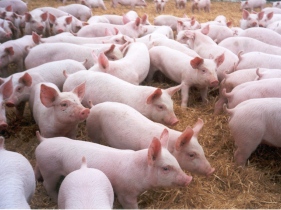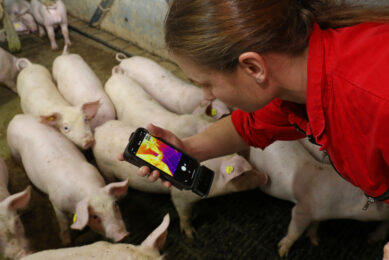NZ pork industry votes to give consumers clarity

New Zealand Pork has announced a strategy focused on consumer choice, confidence and continuing action on animal welfare following its Annual General Meeting in Christchurch earlier this week.
New Zealand Pork chief executive Sam McIvor said the industry would continue to actively engage with government as it reviews animal welfare practices, establish an industry-wide animal welfare audit scheme and investigate improved product labelling.
Consumer confidence
“Consumer confidence is vital to ensure the continued success of the New Zealand pork industry, especially when record levels of inferior imported product has arrived on our shores,” McIvor said.
“To a large extent this confidence is based on three key elements – product quality, information and choice. There is no doubt that New Zealand pork is of the highest of quality but there needs to be more work to ensure consumers have accurate information about our pork and are able to make appropriate purchasing decisions based on this.”
“For this reason, as well as our focus on the review of the Pig Welfare Code, we will begin an industry-wide animal welfare audit of every commercial pig farm in New Zealand. We will develop a product labeling descriptor system that will allow wholesalers and retailers to clearly identify the production system their pork has been grown under.”
Independent annual review
The audit scheme will be based around an independent annual review of compliance with the Pig Welfare Code and will dovetail into regular vet visits that commercial pigs farmers have as part of their current animal health and care programmes.
The approach has been strongly supported by abattoirs, wholesalers, processors and retailers as part of their consumer assurance programmes.
“We believe this is the last plank in the pork industry’s ten year welfare improvement programme started in 2005. This programme includes farmer training and education, the monitoring of changes in sow housing methods, the problem piggery reporting scheme and a research programme targeted at testing new sow housing methods.”
“Providing accurate descriptions of farming systems for the market place to use will allow consumers to purchase with confidence, in the knowledge these descriptors accurately reflect the farming practices used in New Zealand.”
©
“It is too early to say how we will describe our different farming systems, but this will be part of the work that will be undertaken to ensure we get this right,” McIvor said.
Animal-friendliness
“We believe that a focus on the way we produce New Zealand pork will also help show the consumer that the 700,000 kg of imported pork and pork products arriving in NZ every week are produced under framing systems that are not as animal-friendly as ours.©
“Although this is not the main reason why we are taking these steps we do feel it is important for consumers to understand how hard our producers are working to create products that are not only price competitive and of a high quality but are of known provenance,” said McIvor.
Mike King
The pork industry received more media attention in May following a documentary in which comedian Mike King, formerly the frontman for New Zealand Pork, broke into a pig farm with animal activists. Having seen the results, King called on the minister of agriculture to investigate pig farming practices.
Green Party
Green Party Member of Parliament Sue Kedgley welcomed the Pork Industry’s decision to investigate labelling pork so that consumers can work out whether pork products are free range or have been intensively farmed. The Green Party has been calling on the Pork Industry Board to introduce this sort of labelling for years.
Related websites:











